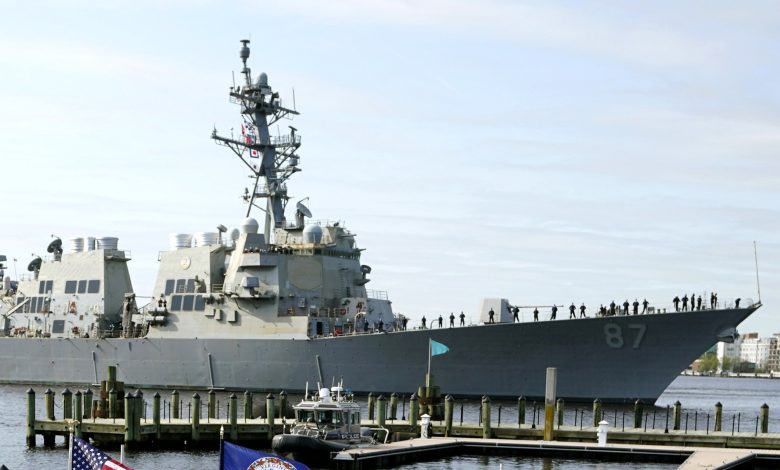Houthi Attacks Affect Global Trade

Agencies- Sudan Events
While the war in Gaza between Israel and Hamas may not lead to the opening of a new military front in Yemen, Red Sea attacks by the Houthi group have already triggered a disruption to global trade.
The Iran-backed movement has been playing a deterrent role since Israel launched its war on the Gaza Strip – killing more than 22,000 Palestinians – following the Hamas attack that killed around 1,200 Israeli civilians and soldiers on 7 October.
On the official basis of acting in “solidarity with Palestinian people,” the Houthis tried to target Israel with their missile and drone arsenal during the initial phase of the conflict in Gaza, but without significant military outcomes.
However, the Houthis shifted their approach to the Gaza war on 17 November when it seized the Israeli-linked cargo vessel, the Galaxy Leader, and its 25 international crew members at the entrance to the Red Sea.
Houthi militants have carried out over 100 drone and missile attacks against commercial ships in the Red Sea over recent weeks. As a result, over 100 cargo ships chose to reroute away from the Suez Canal to evade potential Houthi threats, according to logistics company Kuehne+Nagel.
While the Houthi’s successive targets were initially linked to Israel, later targets had minimal or non-existent connections to Israel.
Attacks on commercial ships in the subsequent weeks prompted the world’s largest shipping companies, such as A.P. Moller-Maersk A/S, Hapag-Lloyd AG, CMA CGM, Maersk, MSC, and the energy giant BP, to either pause activities in the Red Sea or reroute their cargo ships.
Houthi attacks have primarily targeted the Bab el-Mandeb Strait, a critical chokepoint in the Red Sea which also serves as the primary route to the Suez Canal, connecting major European consumers with significant suppliers in Asia. The canal facilitates about 12% of global trade, accounting for over $1 trillion worth of goods annually. Through which about 10% of global crude oil and petroleum products transit.
Houthi attacks have heightened risks for vessels approaching the Suez Canal, and their attempts to disrupt global supply chains are already yielding initial impacts.
Marco Forgione, Director General at The Institute of Export & International Trade, told The New Arab that Houthi attacks on commercial ships have significantly increased fuel costs, impacting Egypt’s revenue from shipping tolls.
This surge in fuel prices, influenced by a de facto blockade, affects about 10% of global oil and 8% of liquefied natural gas (LNG) transits through key routes like Suez, crucial for Europe’s winter energy needs as European Union (EU) states have increased their imports following Ukraine-related sanctions on Russia’s oil industry.
“As Europe faces rising prices during its coldest season and looks to diversify fuel due to Russian sanctions, disruptions at Suez could further strain supplies. Additionally, about 30% of global container shipping passes through Suez, affecting various goods from raw materials like iron ore and copper to foodstuffs,” Forgione said.



